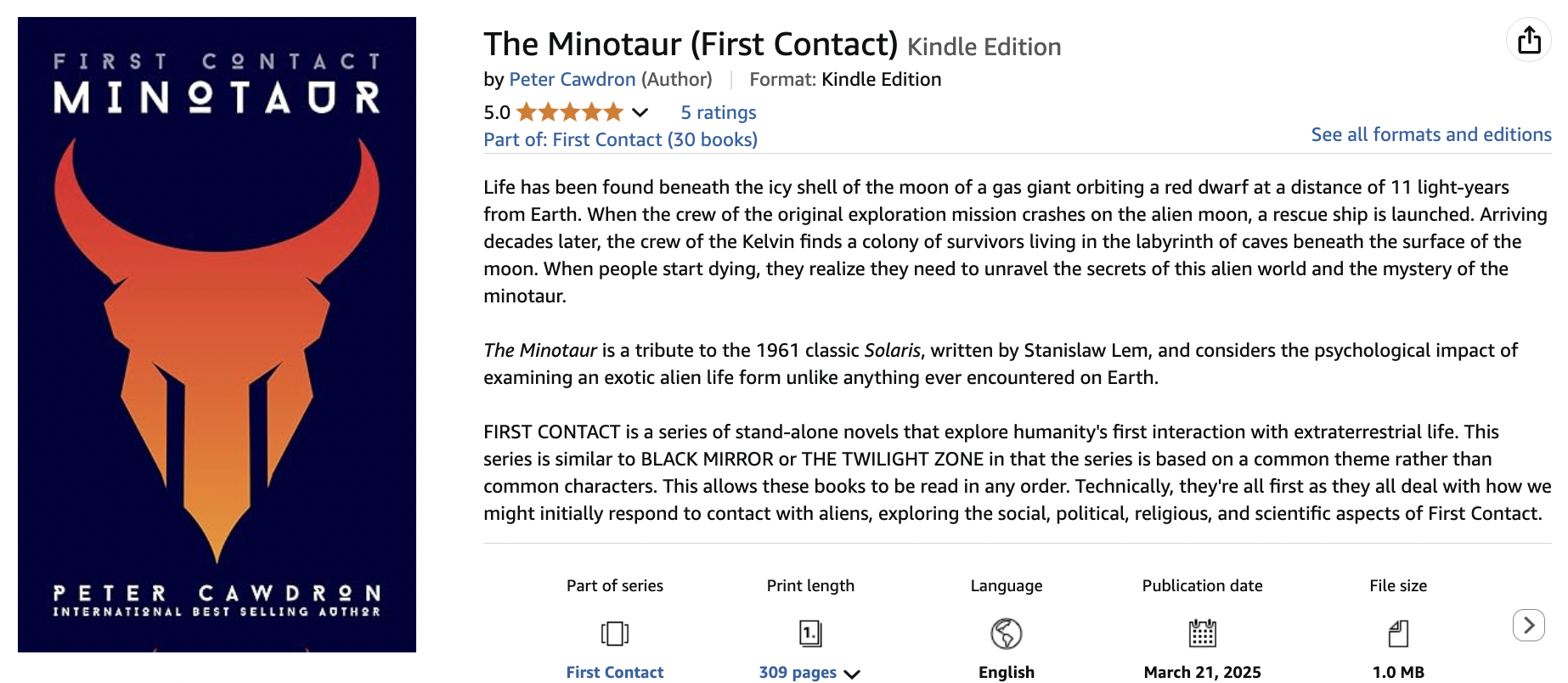My latest novel, coming out this Friday, is The Minotaur. It’s a tribute to the Polish novel Solaris.

I love writing tribute pieces to classic science fiction from the Golden Age, as often these stories are lost in time. They can be dated in styling, technology and pacing, but they still pack a punch and have had an impact on subsequent writers, even if they don’t realize it.
In 1961, at the height of the Cold War, Stanisław Lem wrote a science fiction classic from behind the Iron Curtain. At that time, Poland was part of the Eastern Bloc, controlled by the Soviet Union. In the West, there was distrust over the oppressive nature of communism. The Soviets were condemned as the enemy of freedom and progress, but they held the ascendancy in space. After launching Sputnik in 1957, the Soviet Union went on to take photographs of the far side of the Moon and launched Yuri Gagarin into orbit in April 1961. Fear was rampant. America was scrambling to catch up.
And then came Solaris.

Although it’s not a political novel, Solaris is a reflection of its time and explores humanity in the context of First Contact. Rather than quelling uncertainty, it toys with the limits of human understanding and suggests there may not be a rational explanation for everything in the universe.
In the novel, Lem strips bare the arrogance of colonization while deftly telling a story of sorrow, guilt and grief. He writes with prescience and compassion, defying the Western stereotypes projected onto Soviet literature. He satirizes the extremes of politics without ever mentioning any one political system. His piercing insights are still applicable today.
…we don’t want to enslave other races, we simply want to bequeath them our values and take over their heritage in exchange. We think of ourselves as the Knights of the Holy Contact. This is another lie. We are only seeking Man. We have no need of other worlds. We need mirrors.
— Solaris: Chapter 6: The Little Apocrypha
Lem’s depiction of an alien world as a single, living entity, constantly adapting and changing, one that’s incomprehensible to humanity, shifted science fiction from its simplistic origins. He challenged the blind rush to endlessly explore the unknown without actually solving social and political problems and used his novel to confront the egotism of human arrogance.
Man has gone out to explore other worlds and other civilizations without having explored his own labyrinth of dark passages and secret chambers and without finding what lies behind doorways that he himself has sealed.
— Solaris: Chapter 10: Conversation
Like all novels of its time, Solaris is dated. The technology is simplistic. The characters are flat. And then, suddenly, they’re not. Suddenly, they’re rich and full of realism and emotion—and you find yourself lost in an alien ocean.
Although I read the novel over Christmas, it’s been over a decade since I watched the George Clooney adaptation. I think I might have to go back and watch it again!

Oh, by the way, in my novel The Minotaur, there’s a passing reference made to a character called Zak Lem from the crew of the Herschel. Zak is a contracted form of the Polish Staszak, which is a diminutive form of Stanisław. In this way, Stanisław Lem makes a quiet cameo in my tribute to Solaris. Also, the rescue ship in this novel is named after Kris Kelvin, the protagonist in Solaris.
I hope you’ll grab a copy of The Minotaur, but more than that, I hope you will be inspired to read Solaris. It deserves its place among the great science fiction novels of the Golden Age and should not be forgotten.



